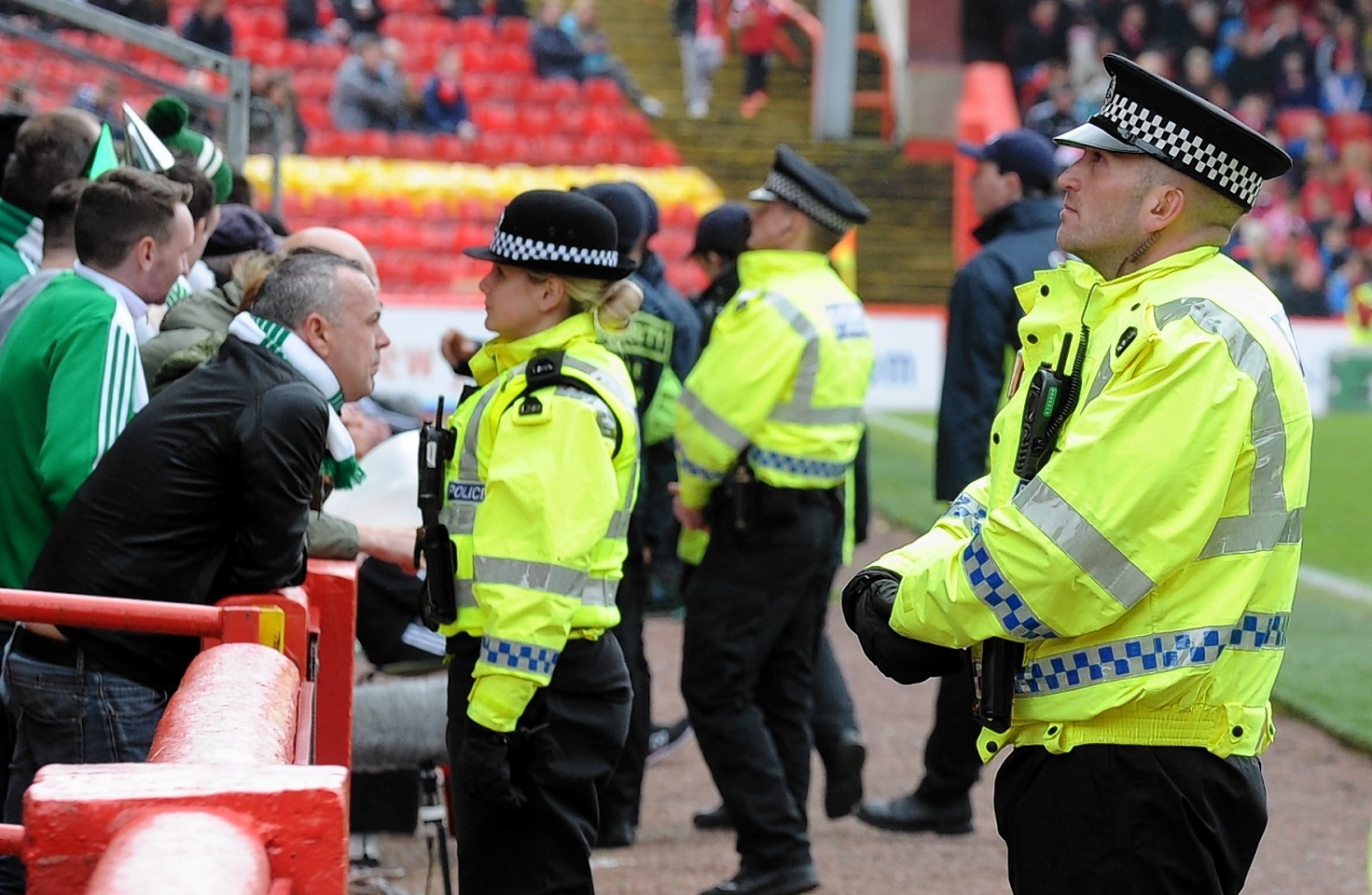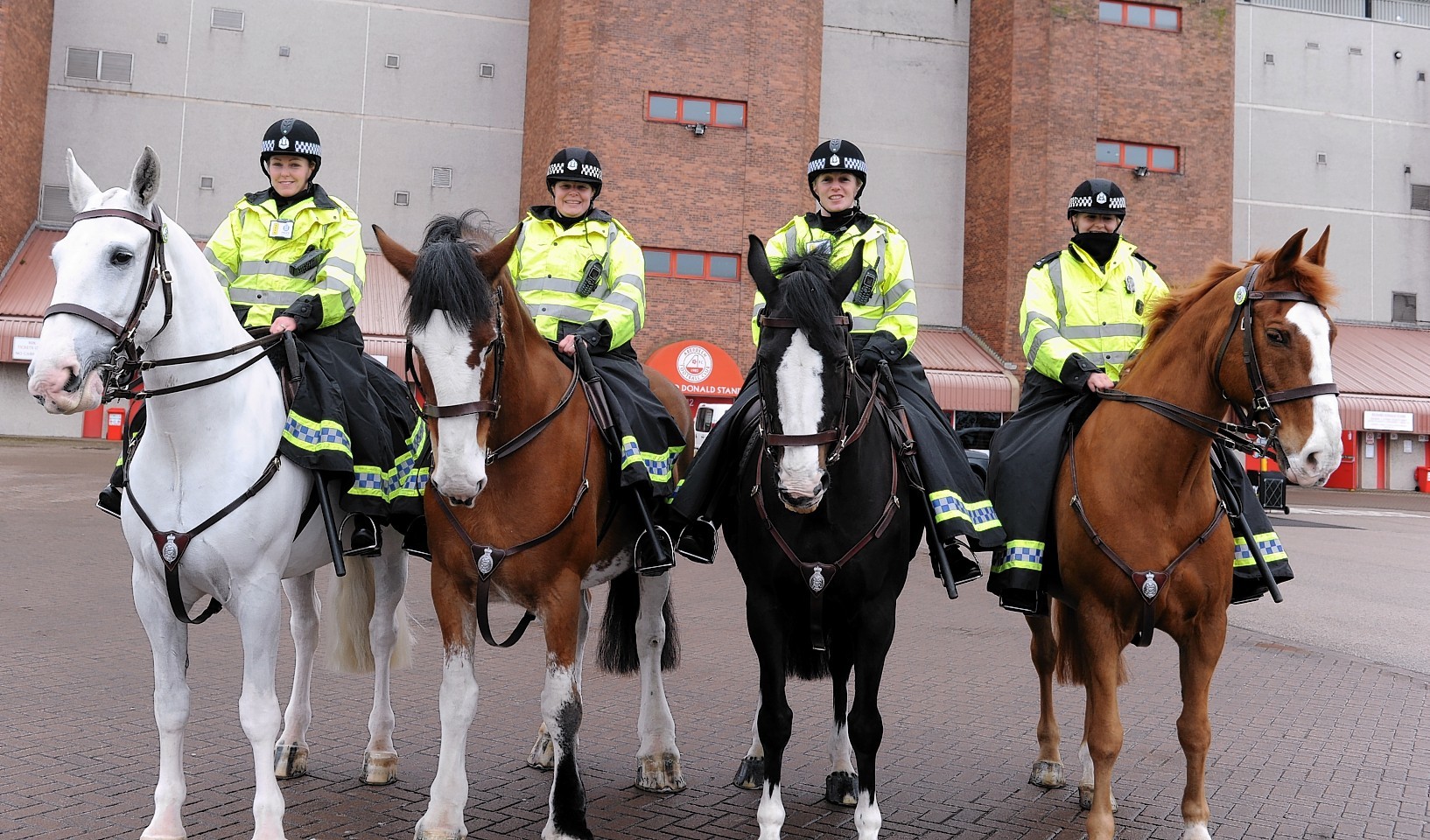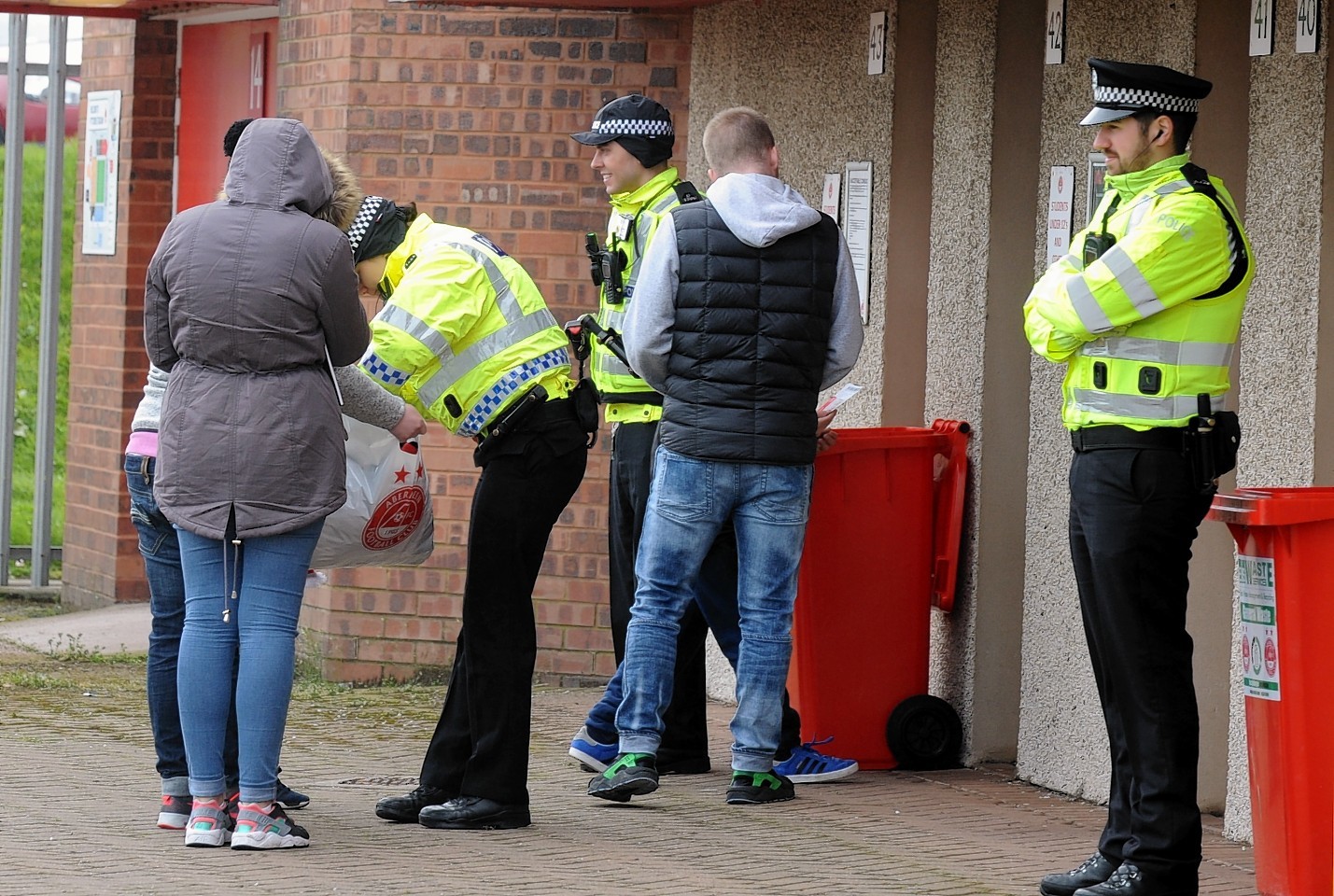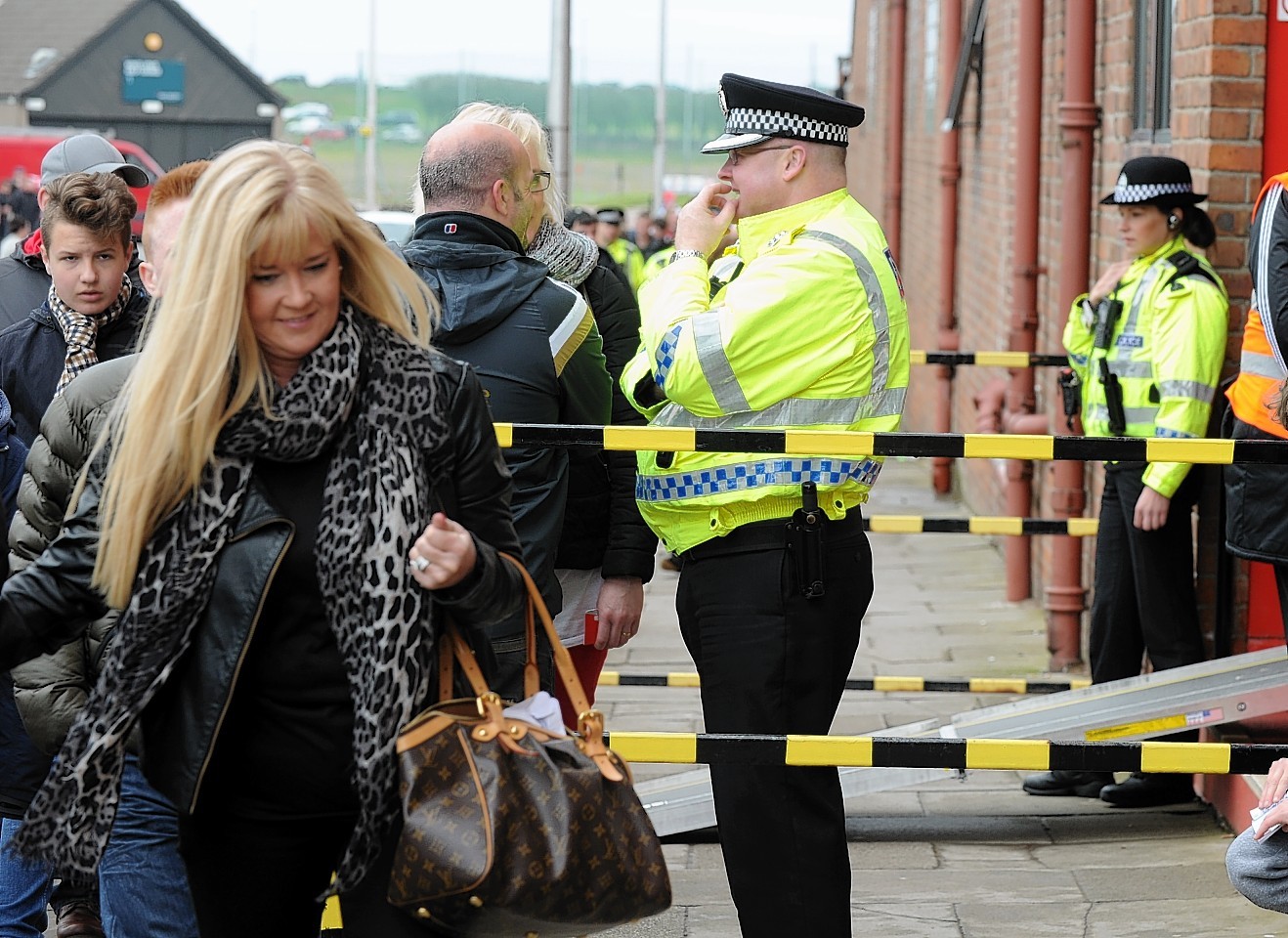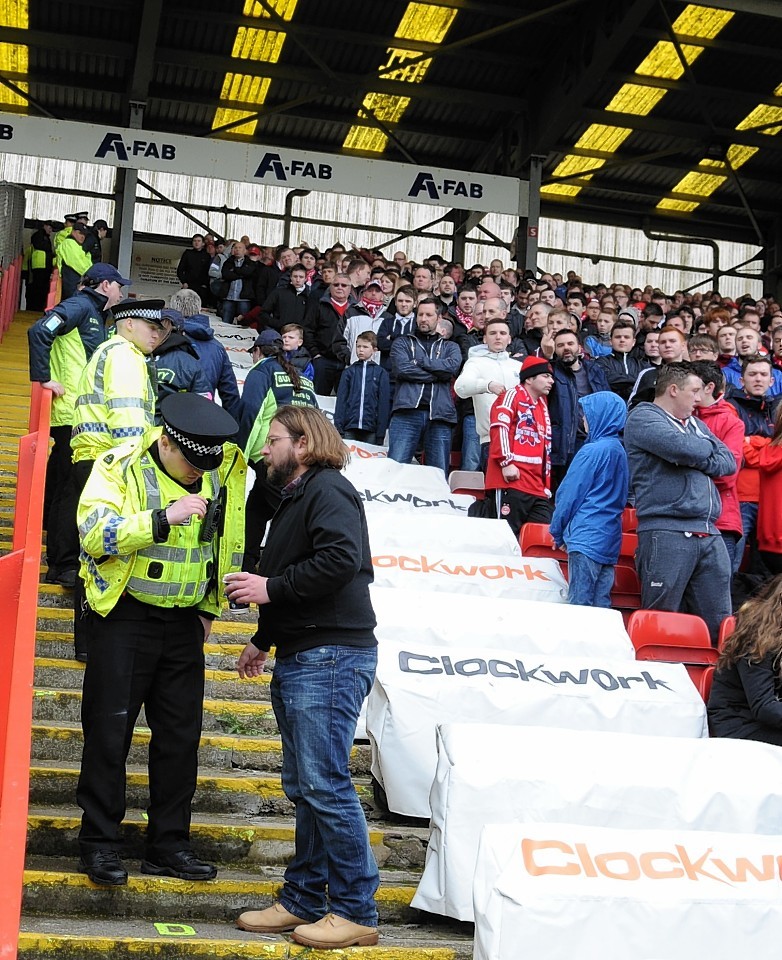As thousands of fans gathered at Aberdeen FC’s Pittodrie Stadium for the Dons’ clash with Celtic yesterday, P&J reporter Ashleigh Barbour got a look behind the scenes at the huge security operation designed to allow supporters to enjoy the match in safety.
It is match day, and those around me are confident that the week’s preparation and planning will pay off.
They’ve analysed the opposition and have a clear and concise plan to deal with the threat posed by the other side.
After receiving their final instructions from management, they head to the stadium confident of a result.
However, the people surrounding me are not Derek McInnes and the Aberdeen players – and the result they are after is not three points.
All this team wants is the next 90 minutes to pass without incident, and to ensure the near-20,000 people who will descend on Pittodrie are safe.
Yesterday, the Press and Journal was given exclusive access to Police Scotland’s Aberdeen division tasked with ensuring the Dons’ meeting with Celtic went without a hitch.
With a late kick off to contend with and championship-winning Celtic already in “celebration mode”, the force deployed the biggest number of officers seen at a Pittodrie match all season.
From monitoring social media and gathering “intelligence” on potential threats, to drafting in police horses and dogs for extra support, weeks of planning went into ensuring the “2%” of troublemakers would be dealt with post haste.
Last night, officers revealed that only two people were arrested at the game, while just a dozen “inebriated” supporters were turned away from the ground.
Chief Superintendent Adrian Watson hailed it one of the “most successful” matches in the history of Pittodrie – and thanked both Aberdeen and Celtic fans for their support.
Match day for his team began at 10am at the police’s Aberdeen HQ in the city’s Queen Street, where, in the top floor boardroom of the imposing building, the most senior officers in the north-east gathered.
Mr Watson reminded his top team that they must be ready for anything.
“This isn’t an exact science,” he told them, as they contemplated what could potentially go wrong.
Thankfully, the intelligence gathered so far flagged-up no major causes for concern, but they fully expected pyrotechnics and smoke bombs to be smuggled in, and for alcohol to be an issue.
Half an hour later, the room was crammed with representatives from almost every unit in A-division – the traffic unit, dog handlers, and even security from AFC – as another briefing commenced.
The team got down to statistics, even reporting the number of Celtic fans who boarded the 12:36pm Glasgow train bound for Aberdeen – 30 to be exact, all wearing scarves and who had been on “good behaviour” so far.
Nine AFC supporters, and 25 Celtic fans had been handed football banning orders, and the uniformed “spotters” confirmed they knew who they were looking for and what to do if one was brave enough to get caught.
Superintendent Innes Walker – who would be in control inside the ground – said he was well aware their biggest problem would be alcohol and the late kick-off .
But he urged his team not to spoil anyone’s fun.
“If they are drunk, discourage them from going up to the game,” he said.
“If they are having trouble speaking, tell them that if they go into the ground they will be lifted.
“Fans are here to have a good time, and we want to help with that.”
In 2013, Mr Watson announced that most matches at Pittodrie would be “police-free” – a move he was challenged on at the time, but one which other divisions have since followed.
Yesterday’s game was the first in 10 which had a strong police presence.
Mr Watson said the stewards at AFC were ultimately in charge, and that whether officers would attend games or not was a decision taken together.
“If we need to be there, we will be there. And we will use the resources to give us the best results,” he said.
Yesterday, this included four strapping horses – named Kilmarnock, Ayr, Forth and Lauder – who arrived to assist at Pittodrie under the leadership of mounted sergeant Claire Duffy.
She said the animals were no gimmick, and that anyone who thought they were for show were wrong.
As the imposing horses made their way through the streets of Aberdeen, stopping pedestrians in their tracks, she said they had a presence no officer could compete with.
“They also break down barriers with the public – people will be more inclined to approach officers on mount. But you also would not want to mess with them,” she said.
“They have broken up fights quicker than officers could.”
As swarms of green and white and red and white-clad supporters descended on Pittodrie – oblivious to the major police operation going on behind the scenes – about 30 uniformed officers took their positions on the periphery of the stadium and another 55 inside.
Within Pittodrie’s main control room, which overlooks the pitch, CCTV monitors left no spot inside or outside the stadium uncovered
Roland George, AFC’s events safety officer, who worked in tandem with Superintendent Walker throughout the entire game, said: “There’s nothing we can’t see.”
Meanwhile, searches were taking place outside as 2,200 Celtic fans and 16,500 Dons supporters entered the stadium en masse.
And yesterday there were four special helpers – two German shepherds, Danko and Yogi, a labrador named Dell and sniffer dog spaniel Freddie.
For police dog handler Colin Hunter this would be his last game before he retires in two weeks after 30 years with the force.
Yogi, who he picked up as a puppy five years go, will be retiring with him too.
“The football fans who come up here are well drilled,” he said.
“They know what they are allowed and know what they are not allowed.
“Sometimes fans get bad press, but I think they are more well-intentioned than people give them credit for.”
As one Celtic fan approached the gates, he was stopped in his tracks by Freddie, who alerted officers that all was not quite right, although nothing untoward was found on the supporter in question.
Mr Watson later confirmed that one Celtic supporter was arrested for “boisterous” behaviour, while another under the influence of alcohol was taken in for refusing to leave the ground.
“It’s been years and years in the making to get us to this point, but our operation is now as slick as it has ever been,” said Mr Watson.
